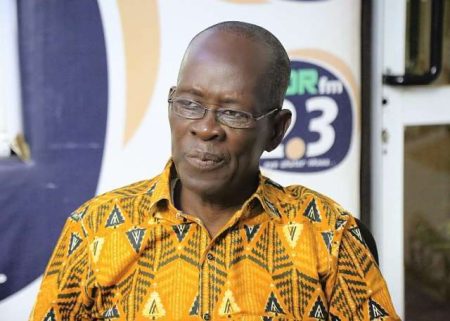The Economic Community of West African States (ECOWAS) convened its 2025 Mid-Year Joint Statutory Meetings from August 4th to 18th, marking a significant stride towards deeper regional cooperation. These virtual meetings served as a crucial platform for key financial institutions and policy stakeholders to chart a course for regional monetary integration, macroeconomic coordination, and the highly anticipated launch of the ECO, the proposed single currency, by 2027. The meetings, held under the aegis of the ECOWAS Commission, brought together three pivotal monetary institutions: the West African Monetary Agency (WAMA), the West African Monetary Institute (WAMI), and the West African Institute for Financial and Economic Management (WAIFEM). This collaborative effort aimed to strengthen and refine West Africa’s economic governance framework. The high-level importance of the meetings was underscored by the participation of central bank governors, finance ministers, macroeconomic policy experts, and representatives from development partner organizations.
The agenda encompassed a series of specialized technical and strategic sessions designed to assess progress, tackle regional challenges, and ensure policy decisions align with ECOWAS’s long-term integration objectives. Discussions centered on several critical aspects of the region’s economic architecture. These included a review of the 2024 ECOWAS Macroeconomic Convergence Report, which provides an assessment of member states’ progress towards meeting the criteria for monetary union. Furthermore, the meetings evaluated the implementation status of the ECOWAS Roadmap, particularly concerning policy harmonization, fiscal discipline, and economic surveillance mechanisms. The performance of the ECOWAS Solidarity and Stabilization Fund, a vital instrument for supporting macroeconomic stability across member states, was also scrutinized.
Recognizing the dynamic global economic landscape, the meetings also delved into prevailing economic trends, including exchange rate fluctuations, inflationary pressures, and financial market dynamics. These factors have significant implications for the West African Monetary Zone (WAMZ) and other ECOWAS member states. Additionally, deliberations focused on advancements in regional digital payment systems and financial sector reforms, essential components of a modern and integrated economic system. Crucially, the meetings dedicated considerable attention to the preparatory steps necessary for the adoption of the ECO single currency, covering crucial aspects such as monetary convergence criteria and the establishment of robust legal frameworks.
The timing of these meetings was particularly pertinent given the heightened global economic uncertainty, rising inflation, and volatile exchange rates impacting the region. These external pressures, coupled with internal structural challenges, have underscored the urgent need for stronger regional coordination and collaboration. Experts emphasize that persistent inflation and currency depreciation continue to impede intra-regional trade, hinder investment flows, and erode purchasing power in many ECOWAS countries. These challenges pose a significant threat to the region’s broader economic convergence agenda.
Liberia actively participated in the meetings, with representation from both the Ministry of Finance and Development Planning (MFDP) and the Central Bank of Liberia (CBL). Henry F. Saamoi, Executive Governor of the Central Bank of Liberia, emphasized the significance of the meetings, stating that they “reaffirm our collective commitment to regional integration and economic transformation.” He further highlighted their role as a platform for “evidence-based dialogue and coordinated action to address shared challenges and accelerate the realization of the ECO.”
The outcomes of the 2025 Mid-Year Joint Statutory Meetings are expected to shape key monetary and fiscal policy decisions across the region in the latter half of the year. More importantly, they lay the foundation for robust long-term strategies supporting the successful launch of the ECO in 2027. The ECO is envisioned as a single regional currency that will streamline trade, mitigate exchange rate volatility, and foster monetary stability and economic growth across ECOWAS’s 15 member states. Its successful implementation would represent a landmark achievement in Africa’s regional integration journey.
The 2025 Mid-Year Joint Statutory Meetings are not merely routine bureaucratic gatherings but rather a strategic platform for recalibrating priorities, galvanizing political will, and reaffirming the region’s shared destiny. With the 2027 target firmly in sight, West Africa is taking deliberate and coordinated steps towards forging a unified, resilient, and prosperous economic bloc. This bloc is envisioned to effectively withstand external shocks while delivering tangible benefits to its citizens. The meetings underscore ECOWAS’s commitment to deeper regional integration, recognizing that a unified economic front is crucial for navigating the complexities of the global economic landscape and achieving sustainable development. Through these concerted efforts, West Africa strives to unlock its full economic potential and secure a brighter future for its people.














